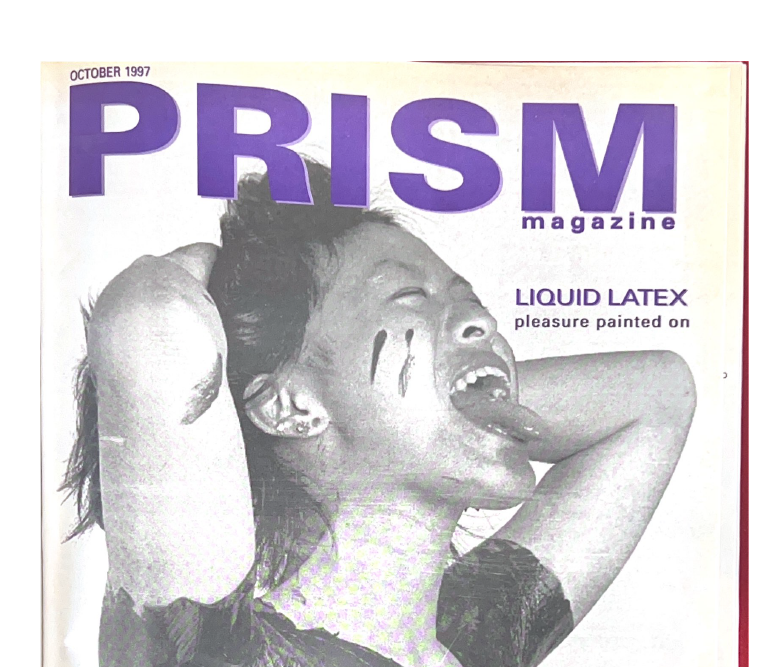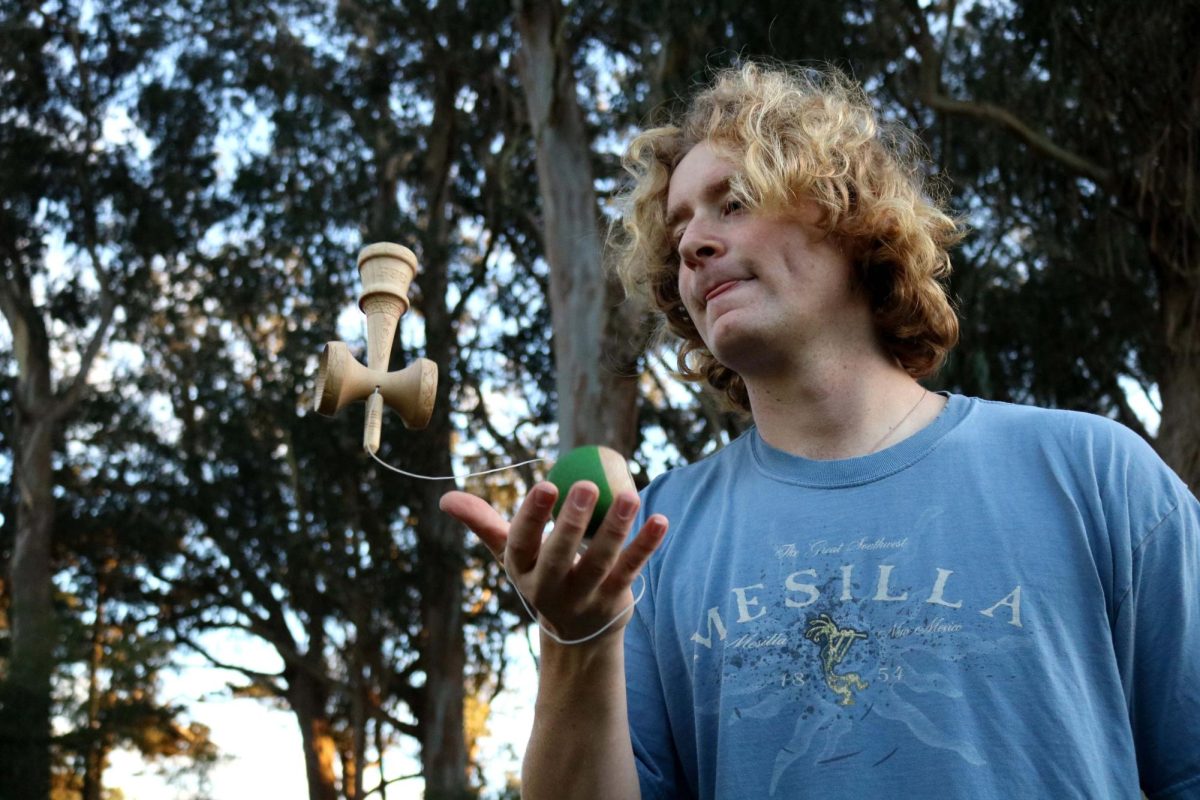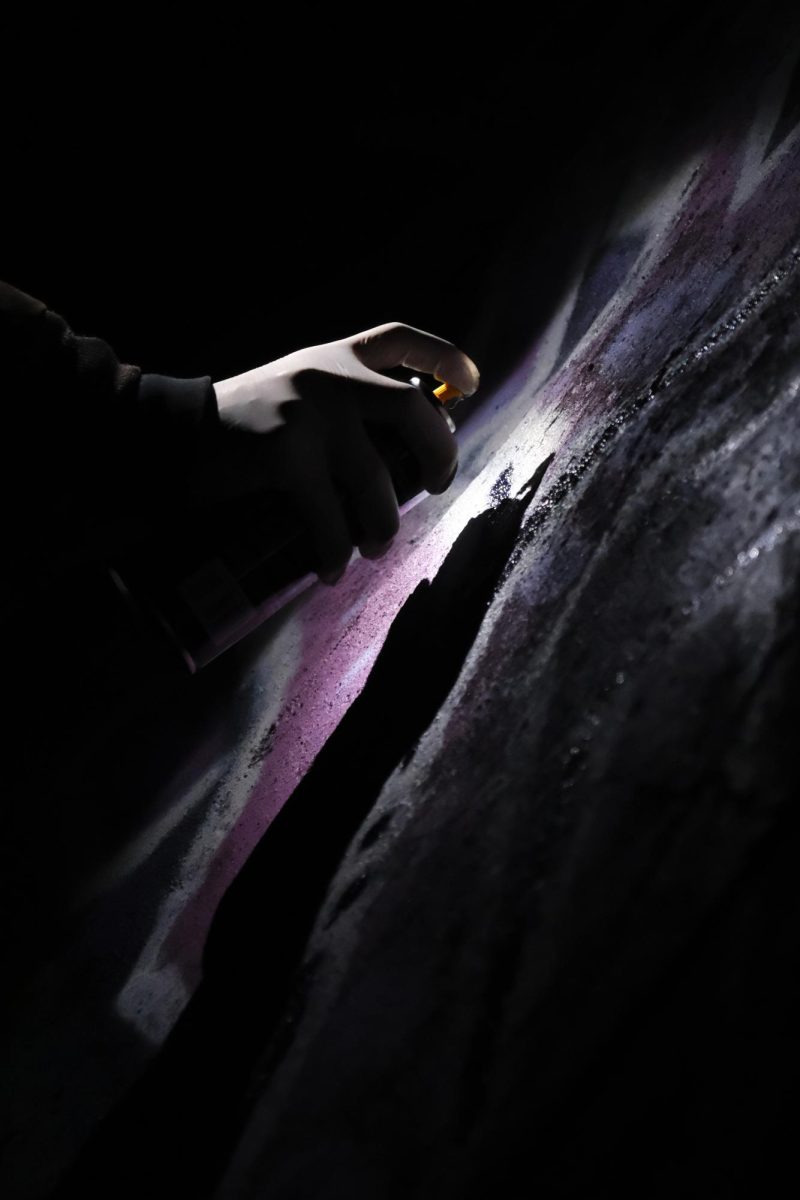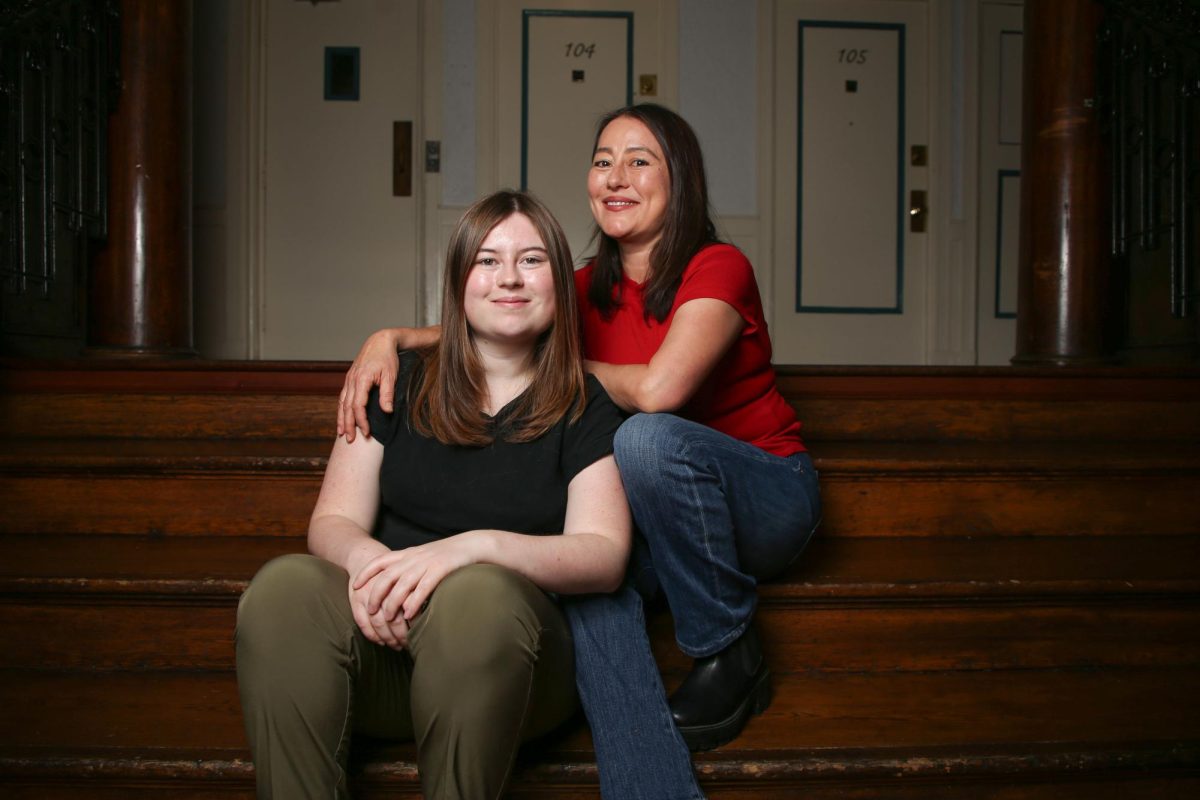
Not a single seat is left open at the Depot. The rap song Red Nose by Sage the Gemini plays forcefully over the loudspeakers as anxious and excited SF State students await the first Spoken Poetry Expressed by All Kinds (S.P.E.A.K.) event of the semester. The room is dimly lit, with only the glow of stringed Christmas lights draped over the wall of the orange slice-shaped stage, and a red and blue spot light that points at the crowd.
Suddenly, two students jump up on stage.
“This is not your typical open mic night,” explain the hosts of the night, Jasmarie Murry, 21, and Keenan Todd, 21. “No snaps, candles, or shrines. We don’t do that. ”
S.P.E.A.K. is a service organization that hosts bi-monthly open mic nights at the Depot, the student venue housed in the student center, that allows students of all ages and backgrounds to express their creative sides, whether it be through song, dance, spoken word, or just about any other artistic form of expression.
Historically, San Francisco has been identified as a hub for the arts; poetry has also always had a home in the City. After World War II, there was great rise in poetic activity in the Bay Area. This time is known as the San Francisco Renaissance. The poets of this time were active and influential in many genres and often collaborated with one another. The Beat generation of the 1950s shocked the country with a new free-form style of writing and their unconventional way of life.
Today, poetry is still a prominent art form in the Bay Area, with several programs like the Bay Area Poets Coalition, a non-profit organization that publishes a small press poetry journal called Poetalk and conducts an annual poetry contest. There are also several spots in the City that hold open mic nights open to the public. Every Thursday, rain or shine, poets and artists gather for a weekly underground poetry and music performance event on the corner of the 16th and Mission BART station. It is an event in which anyone is welcome to join and express their emotions with other Bay Area locals in a welcoming and open environment.
Imani Cezane co-founded S.P.E.A.K with her two friends, Anthony May and Jasmine Williams, in March of 2010. It all began when she moved to San Francisco and had a new excitement for the spoken word community and wanted to discover more about the poetry scene at SF State. According to Jarvis DeAngelo, president of S.P.E.A.K., there was not much happening on campus as far as providing a platform for poetry.
“I was really excited to see what the spoken word community out here looked like and when I didn’t see it represented on campus I decided that I would take matters into my own hands,” says Cezane.
Cezane and her friends began hosting an open mic night at the Depot every couple of months, but it was never a scheduled event. After the first few events, people started asking for more.
“People came up to us and started asking us when the next event would be,” says Cezane. “We were like ‘Oh..we weren’t really planning on having a next one.’ But then we had another one, and another one, and it just got really popular.”
S.P.E.A.K. has grown dramatically since 2010. The show’s attendance has doubled if not tripled, with more than fifty students crowding the small room for the open mic nights. All of the seats in the Depot are quickly occupied, forcing some spectators to sit along the walls of the stage itself. They even had to make changes to the program because of its growth. An extra hour has been added onto the show in order to meet demands and they have also added an intermission since it has become such a long show.

This semester’s first S.P.E.A.K. event went off without a hitch. The hosts announced the S.P.E.A.K. rules: each speaker only gets four minutes on stage, respect the speakers, and if you hear something you like you yell “speak on it!” One by one, both nervous and confident students of all backgrounds got on stage to express themselves. Performers ranged from poets, to singers, and even a saxophone player.
DeMareon Gipson, 22, a Psychology student who transferred to SF State last semester, was one of the performers that night. Gipson walks up on stage, hoodie over his head, and recites one of his own personal poems from his upcoming book. Gipson first learned about S.P.E.A.K through other students on campus.
“I was just going around and asking if anyone knew about any open mic nights at school and someone told me ‘yea, there’s this thing called S.P.E.A.K at the Depot, you should go!’” says Gipson. “I went and met a bunch of poets and artists and eventually started performing.”
Gipson looks like a pro, confident, and composed. However, it was not always so easy. His first experience on stage last year was just the opposite.
“I didn’t get any type of claps or anything, but it still built up my self-confidence,” says Gipson. “I think that everybody who does poetry or public speaking has to go through that experience at least once. It makes you reaffirm what you are doing.”
Gipson has come far since his first night on stage. His first book, entitled “Looking Forward,” a motivational book of his poems, is being published this November.
“It’s not like Dr. Phil or whatever. It’s not like change your life today!” says Gipson. “The only person that can really change your life is you. I just want to share with people the information that helped me during some of my darkest times and help them find the things that make them consider what life is.”
For Gipson and many others, S.P.E.A.K. provides a non-judgmental space to express themselves and say whatever they need to say.
“The age range that is the college student is a very crucial time in ones life. A lot of us are in new places for the first time, or away from our parents for the first time,” says Cezane. “College is an entirely new community and space, that creates a lot of emotion and sometimes you just need to let that out.”
For Gipson, creating poetry gives him a natural high.
“To be able to share it with other people is a cool feeling,” says Gipson. “I was having a pretty bad day that day but I just got up there and performed and it just made me happy.”
For the past few years S.P.E.A.K.’s slam team has been attending the National Collegiate Poetry Slam, which takes place in a different state every year. According to Cezane, each year they have had to come up with the all of the funding to send their team to the event.
“We have gone to Union Square reciting poems for money,” says Cezane. “We even begged the Vice President of the school two years ago when we went to New York. We had the VP literally write us a check from his own personal checkbook because he believed in what we were doing and he knew that the school wasn’t going to fund it.”
S.P.E.A.K. was eventually able to raise enough money to send their team to New York.
“We did not get any help from the campus at all,” says Cezane. “They were really quick to mention how SF State came in fifth place in the competition out of seventy teams, but they didn’t want to have anything to do with making sure we got there. And they won’t this year either. We are going to Virginia and I’m sure that it is going to be the same.”
Gipson is also offended about the situation.
“It really makes me kind of upset because I heard that S.P.E.A.K. is not sponsored by the school,” says Gipson. “That really sucks to hear because I think this generation is putting less of an emphasis on creativity. I think everyone needs to have creativity, it helps you think outside of the box.”
The Associated Student government’s Vice President of Financing Ramon Gonzales says that S.P.E.A.K. does receive funding.
“They have been receiving funding for the past three years,” says Gonzales. “At our recent Board of Directors meeting, they asked for $1000, $700 for their final slam and $300 for the two Open Mic nights.”
According to Jarvis DeAngelo, the president of S.P.E.A.K., the money that Associated Students Incorporated (ASI) gives S.P.E.A.K. can only be used to pay for their features and promote their events. ASI will not allow the funding of student travel or student expenses for travel.
“When we have asked ASI to fund those things in previous years, we were denied,” says DeAngelo.
Despite not receiving funding for travel, S.P.E.A.K.’s open mic night continues to bring in students every month.
Korynn O’Connell and her music partner Ruben, were just two of the thirty performers that got up on stage on S.P.E.A.K.’s second open mic night of the semester. As they reach the stage, Ruben pulls over a chair, sits on it and begins to strum his guitar. O’Connell, a girl with long brown hair, pulls the microphone up to her face and proceeds to tell the crowd about the song she is about to sing.
“I studied in Montreal last year and when I got back I wrote this song in the car about how much I love this city,” says O’Connell.
The lyrics of her song described San Francisco and spoke about how much she had missed the city while she was living abroad.
Another performer that night spoke about the struggles of being a black man in America. He wore black slacks, a black long-sleeved shirt and black-rimmed glasses to match his dark beard and skin. His speech was sad but touching. He screamed ‘Why was I born in this body, this shape.’ Throughout his speech audience members would shout out in support, almost as if they could feel what he was feeling.
There is a remarkable amount of talent at SF State and S.P.E.A.K provides the platform for students to let their talents be known. Whether you want to rap your own lyrics, speak on political rights issues or show your musical talents on the piano, the open mic night can make that happen.



![[From left to right] Joseph Escobedo, Mariana Del Toro, Oliver Elias Tinoco and Rogelio Cruz, Latinx Queer Club officers, introduce themselves to members in the meeting room on the second floor of the Cesar Chavez Student Center.](https://xpressmagazine.org/wp-content/uploads/2024/03/mag_theirown_DH_014-1200x800.jpg)




